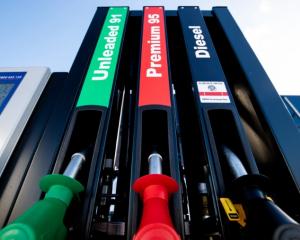
Bill English. Photo: Getty Images
The strength backed up polls showing most New Zealanders felt the economy would improve further during the next 12 months.
Infometrics says that it has brought back the misery index, which examines the state of the country under previous New Zealand governments to provide a sense test of how the electorate might be feeling in the lead-up to September 23.
Although the state of the economy was only part of what might influence voters’ decisions, in the past, governments that had overseen poor economic performance had been less likely to be re-elected, Infometrics said.
On the flip side, governments that had overseen positive economic performance had been treated more kindly by voters, who appeared to be more content with the state of affairs.
Infometrics said the fact the Key-English administration of 2014-17 was the fifth-highest-ranked New Zealand government since 1972 looked good for a National election win in September.
The strong economy was demonstrated by unemployment falling to 4.8%, a relatively small current account balance, moderate GDP growth, low real interest rates and low inflation.
‘‘In other words, voters generally feel more upbeat than in the lead-up to other elections.’’
Even though the current National-led Government might face a better chance of re-election if there was less misery for voters from a strong economy, the Government did not directly control the outcomes of those indicators.
However, that did not stop National using those outcomes to campaign on ‘‘Delivering for New Zealanders’’, Infometrics said.
If it was re-elected, voters would expect to see sustained growth, rising wages, and government action to address issues such as housing and the environment.
‘‘And re-election might well rely on National’s ability to do a deal with New Zealand First — a tightrope walk for any seasoned politician.’’
Significant concessions would need to be made to form a National-NZ First coalition but the option was viable, Infometrics said.
The few election results incorrectly picked by the misery index could be attributed to a charismatic leader, events outside the government’s control or a combination of the two.
Recent ructions among the Opposition had meant two leaders quitting and a resurgence in Labour’s fortunes courtesy of Jacinda Ardern.
‘‘With the new Labour leader surging in the preferred prime minister polls to be just behind incumbent Bill English, there is a renewed possibility of a Labour win.
‘‘As Labour’s policies haven’t changed significantly, this supports the view held by many political commentators that politics in New Zealand is driven by personality rather than policies.’’
At a glance
The misery index defines misery in the economy if inflation rises, unemployment goes up, long-term interest rates increase, GDP growth is below the long-term average of 2.7% or the current account worsens as a percentage of GDP. Lower scores indicate misery, whereas higher scores indicate contentment.
The misery index defines misery in the economy if inflation rises, unemployment goes up, long-term interest rates increase, GDP growth is below the long-term average of 2.7% or the current account worsens as a percentage of GDP. Lower scores indicate misery, whereas higher scores indicate contentment.
Misery index by Government
Bolger 1993-96, Misery score 8, Correctly predicted election: Yes
Clark 1999-2002, 6, Yes.
Kirk-Rowling 1972-75, 6, Yes
Clark 2002-05, 4.8, Yes
Key-English 2014-17, 2.3, ?
Lange 1984-87, 1.1, Yes
Clark, 2005-08, 0.4, Yes
Muldoon, 1978-81, -0.4, Yes
Bolger, 1990-93, -0.9, Yes
Clark 2002-05, 4.8, Yes
Key-English 2014-17, 2.3, ?
Lange 1984-87, 1.1, Yes
Clark, 2005-08, 0.4, Yes
Muldoon, 1978-81, -0.4, Yes
Bolger, 1990-93, -0.9, Yes












